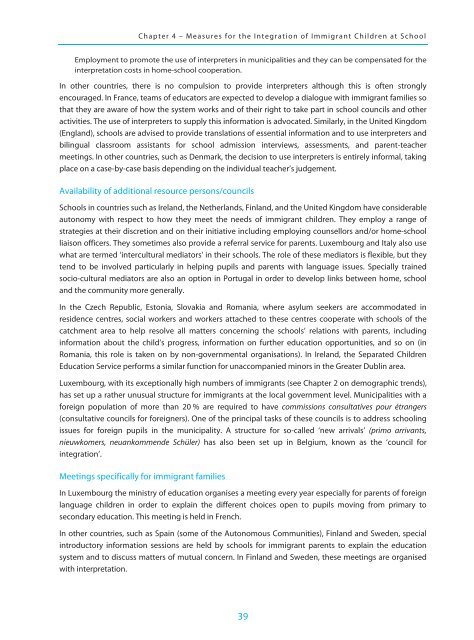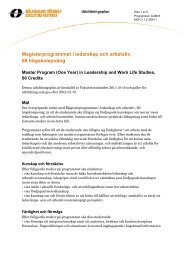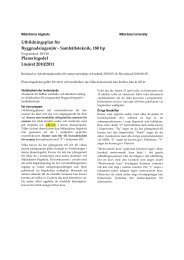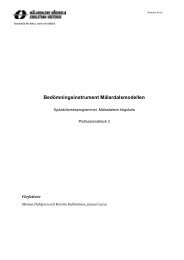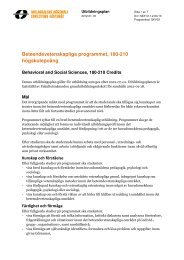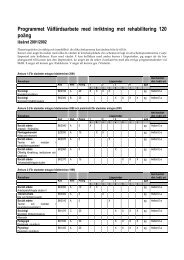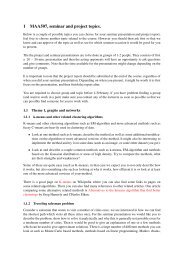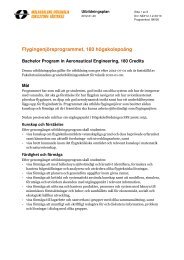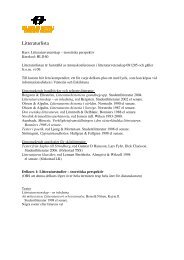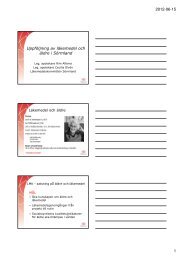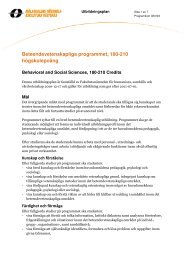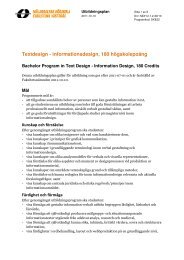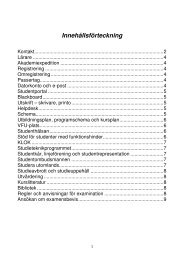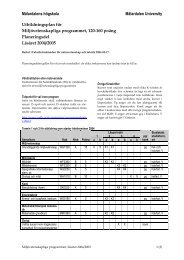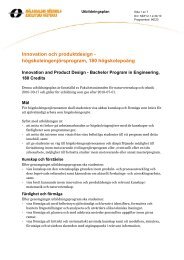Integrating Immigrant Children into Schools in Europe
Integrating Immigrant Children into Schools in Europe
Integrating Immigrant Children into Schools in Europe
Create successful ePaper yourself
Turn your PDF publications into a flip-book with our unique Google optimized e-Paper software.
Chapter 4 – Measures for the Integration of <strong>Immigrant</strong> <strong>Children</strong> at SchoolEmployment to promote the use of <strong>in</strong>terpreters <strong>in</strong> municipalities and they can be compensated for the<strong>in</strong>terpretation costs <strong>in</strong> home-school cooperation.In other countries, there is no compulsion to provide <strong>in</strong>terpreters although this is often stronglyencouraged. In France, teams of educators are expected to develop a dialogue with immigrant families sothat they are aware of how the system works and of their right to take part <strong>in</strong> school councils and otheractivities. The use of <strong>in</strong>terpreters to supply this <strong>in</strong>formation is advocated. Similarly, <strong>in</strong> the United K<strong>in</strong>gdom(England), schools are advised to provide translations of essential <strong>in</strong>formation and to use <strong>in</strong>terpreters andbil<strong>in</strong>gual classroom assistants for school admission <strong>in</strong>terviews, assessments, and parent-teachermeet<strong>in</strong>gs. In other countries, such as Denmark, the decision to use <strong>in</strong>terpreters is entirely <strong>in</strong>formal, tak<strong>in</strong>gplace on a case-by-case basis depend<strong>in</strong>g on the <strong>in</strong>dividual teacher’s judgement.Availability of additional resource persons/councils<strong>Schools</strong> <strong>in</strong> countries such as Ireland, the Netherlands, F<strong>in</strong>land, and the United K<strong>in</strong>gdom have considerableautonomy with respect to how they meet the needs of immigrant children. They employ a range ofstrategies at their discretion and on their <strong>in</strong>itiative <strong>in</strong>clud<strong>in</strong>g employ<strong>in</strong>g counsellors and/or home-schoolliaison officers. They sometimes also provide a referral service for parents. Luxembourg and Italy also usewhat are termed ‘<strong>in</strong>tercultural mediators’ <strong>in</strong> their schools. The role of these mediators is flexible, but theytend to be <strong>in</strong>volved particularly <strong>in</strong> help<strong>in</strong>g pupils and parents with language issues. Specially tra<strong>in</strong>edsocio-cultural mediators are also an option <strong>in</strong> Portugal <strong>in</strong> order to develop l<strong>in</strong>ks between home, schooland the community more generally.In the Czech Republic, Estonia, Slovakia and Romania, where asylum seekers are accommodated <strong>in</strong>residence centres, social workers and workers attached to these centres cooperate with schools of thecatchment area to help resolve all matters concern<strong>in</strong>g the schools’ relations with parents, <strong>in</strong>clud<strong>in</strong>g<strong>in</strong>formation about the child’s progress, <strong>in</strong>formation on further education opportunities, and so on (<strong>in</strong>Romania, this role is taken on by non-governmental organisations). In Ireland, the Separated <strong>Children</strong>Education Service performs a similar function for unaccompanied m<strong>in</strong>ors <strong>in</strong> the Greater Dubl<strong>in</strong> area.Luxembourg, with its exceptionally high numbers of immigrants (see Chapter 2 on demographic trends),has set up a rather unusual structure for immigrants at the local government level. Municipalities with aforeign population of more than 20 % are required to have commissions consultatives pour étrangers(consultative councils for foreigners). One of the pr<strong>in</strong>cipal tasks of these councils is to address school<strong>in</strong>gissues for foreign pupils <strong>in</strong> the municipality. A structure for so-called ‘new arrivals’ (primo arrivants,nieuwkomers, neuankommende Schüler) has also been set up <strong>in</strong> Belgium, known as the ‘council for<strong>in</strong>tegration’.Meet<strong>in</strong>gs specifically for immigrant familiesIn Luxembourg the m<strong>in</strong>istry of education organises a meet<strong>in</strong>g every year especially for parents of foreignlanguage children <strong>in</strong> order to expla<strong>in</strong> the different choices open to pupils mov<strong>in</strong>g from primary tosecondary education. This meet<strong>in</strong>g is held <strong>in</strong> French.In other countries, such as Spa<strong>in</strong> (some of the Autonomous Communities), F<strong>in</strong>land and Sweden, special<strong>in</strong>troductory <strong>in</strong>formation sessions are held by schools for immigrant parents to expla<strong>in</strong> the educationsystem and to discuss matters of mutual concern. In F<strong>in</strong>land and Sweden, these meet<strong>in</strong>gs are organisedwith <strong>in</strong>terpretation.39


